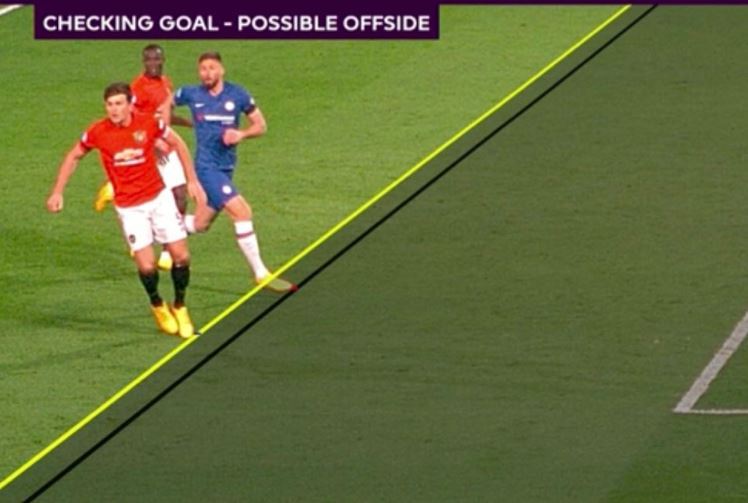By Andrew Warshaw
March 2 – Football’s lawmakers have agreed to undertake a major review the offside law in order to “foster the spirit of attacking play” but no changes will happen for a year and little has otherwise been done to appease the growing clamour for tweaks to the VAR system.
The International Football Association Board decided in Belfast on Saturday to hold consultations over the next 12 months on offside with proposals expected at the end of that process.
David Elleray, England’s former international referee who is technical director at IFAB, said VAR had prompted a change in thinking because of so many marginal VAR decisions that ruled out goals and made a mockery of guidelines that the system should only be used to correct “clear and obvious errors”.
“Assistant referees were always told (in the past), ‘if in doubt, given the benefit of doubt to the attacking team’,” Elleray told reporters.
“Football is saying to us that we don’t think that your toe being two centimetres in front of the end of a defender is a significant enough advantage to be penalised.
“Is it appropriate for us to say, can we change the law to restore more benefit to attacking football?”
Not surprisingly IFAB made no actual changes to VAR itself, with individual leagues responsible for getting the system right.
Clearly referring to the English Premier League, FIFA president Gianni Infantino said that people “need to relax”, adding that “there is only one league in the world today where this issue seems to be a big problem”.
Elleray said he would be “astonished” if the Premier League, where there has been fury over decisions almost every weekend, did not start regularly using pitch-side monitors for reviewing decisions – which is what UEFA does in its competitions.
With so much interest over this year’s IFAB session, it went on for an hour longer than scheduled. But when members emerged, they didn’t exactly make ground-breaking rulings.
Yet one or two seemingly cosmetic proposals could prove significant.
On handball, another area where VAR has caused so much consternation, IFAB approved clarifications to the law to “differentiate more clearly” between the arm and shoulder.
From the start of the 2020/21 season, the point at which the arm stops and the shoulder begins will now be written into the laws of the game as the “T-shirt line”.
And concussion substitutions could be trialled, potentially at the Tokyo Olympics this summer, though in what capacity no-one yet knows.
Irish Football Association chief executive Patrick Nelson, who chaired the meeting, said: “We agreed it would be a sensible move to draw up some protocols for (concussion) trials. More research data is needed before we could consider any permanent changes to the laws.”
The current guidelines allow a three-minute assessment period for concussion and Infantino was keen to stress than FIFA is not dragging feet over the issue.
“Often we were criticised for being slow (on concussion). Now, we move, we try, and then we’ll see,” he said.
But brain injury charity Headway, which led calls for temporary concussion substitutions to be introduced, issued a very different viewpoint.
Peter McCabe, the chief executive of Headway, said IFAB’s strategy was “just another example of football failing to act”.
“This latest announcement just doesn’t go far enough to protect players from the dangers of returning to play following a concussion,” he said. “In practical terms nothing will actually change for the injured player.”
Contact the writer of this story at moc.l1745071061labto1745071061ofdlr1745071061owedi1745071061sni@w1745071061ahsra1745071061w.wer1745071061dna1745071061

